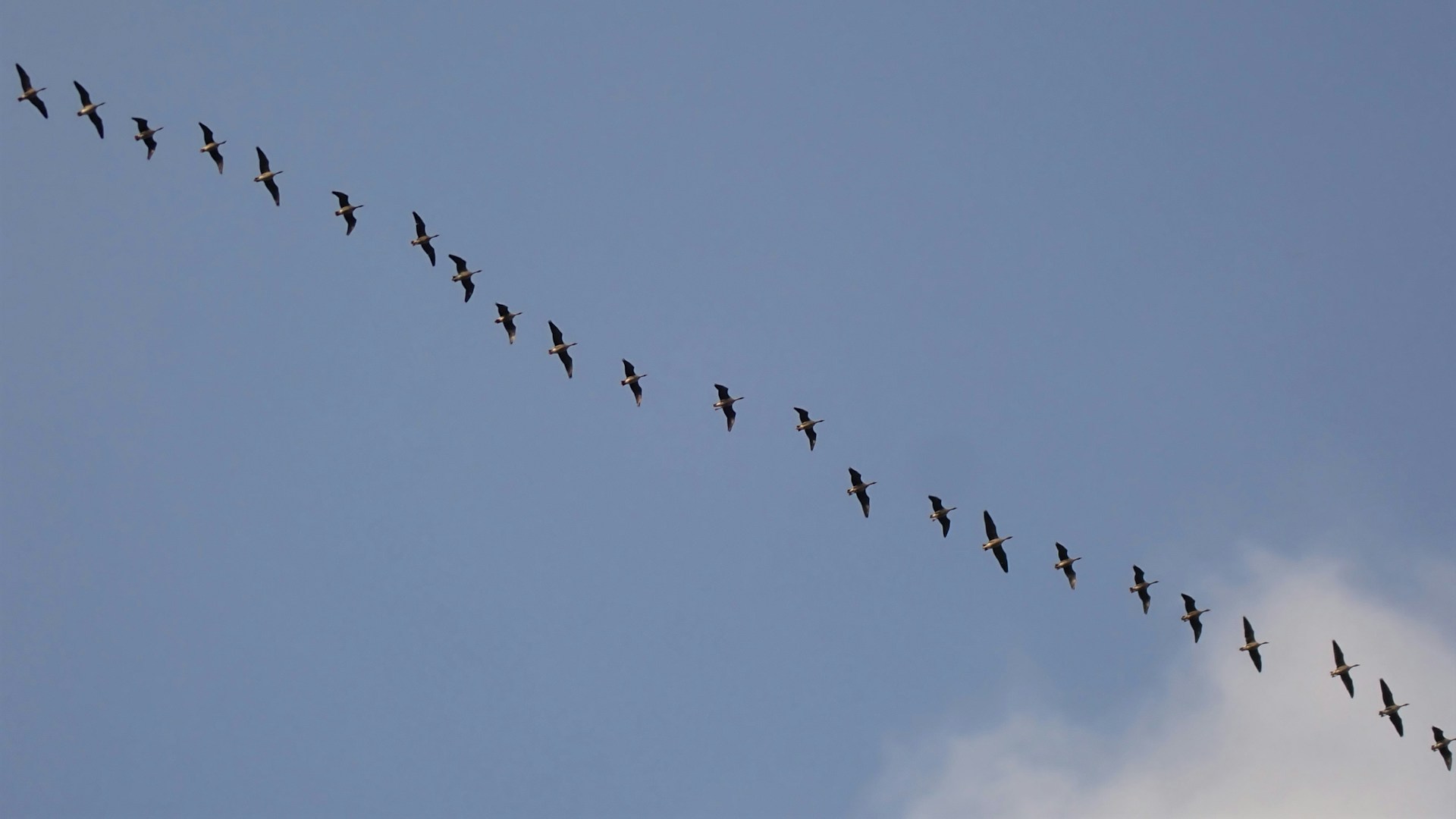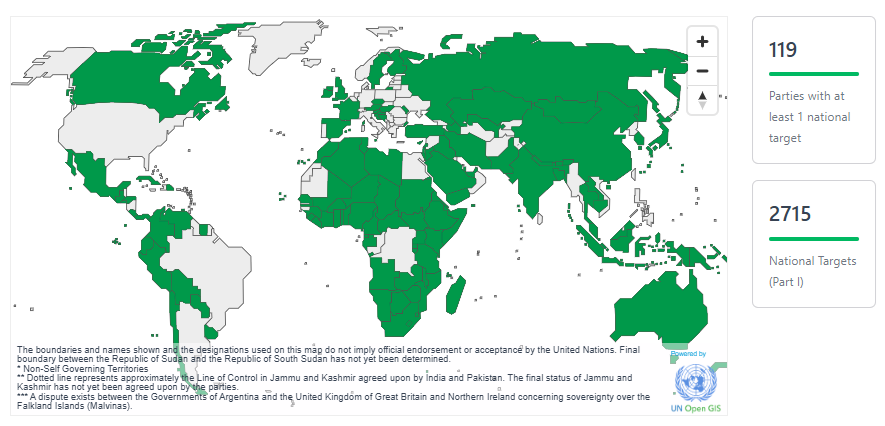Error message
Notice: Undefined property: Drupal\redirect\EventSubscriber\RouteNormalizerRequestSubscriber::$aliasManager in Drupal\redirect\EventSubscriber\RouteNormalizerRequestSubscriber->onKernelRequestRedirect() (line 118 of modules/contrib/redirect/src/EventSubscriber/RouteNormalizerRequestSubscriber.php). Unsplash / Nancy Hughes
Unsplash / Nancy Hughes
Parties to the CBD are submitting national targets reflecting the KMGBF
The 15th meeting of the Conference of the Parties (COP) to the Convention on Biological Diversity (CBD), which adopted the historic Kunming-Montreal Global Biodiversity Framework (KMGBF), charted a timeline for the Parties to align their National Biodiversity Strategies and Action Plans (NBSAPs) with it. Decision 15/6 of COP 15 requests that Parties submit national targets, either as part of their NBSAP submission or as a standalone submission, by COP16, which will take place from 21 October – 1 November 2024 in Cali, Colombia. As of 27 October, 115 Parties have submitted national targets.
While most countries are focusing on the submission of national targets, 35 Parties have submitted NBSAPs aligned with the global aims of the KMGBF: Afghanistan, Australia, Austria, Burkina Faso, Canada, China, Colombia, Cuba, Denmark, European Union, France, Hungary, Indonesia, Ireland, Italy, Japan, Jordan, Libya, Luxembourg, Malaysia, Malta, Mauritania, Mexico, Netherlands (Kingdom of the), Norway, Republic of Korea, Republic of Moldova, Slovenia, Spain, State of Palestine, Suriname, Tonga, Tunisia, Uganda, United Arab Emirates (listed in alphabetical order). Under the Convention, NBSAPs constitute the principal instruments for the implementation of the CBD at the national level.
Two months ahead of the deadline, approximately a third of the Parties submitted national targets. Here are three aspects worth celebrating about the encouraging pace of submission:
1. A boost to national ambition and political will
The process of preparing national targets involves pan-governmental consultations and cross-sectorial analysis. The mainstreaming of national targets into broader strategies and plans, such as sustainable development plans and poverty reduction strategies—among other national processes—is likely to promote synergies, reveal opportunities for broader impact and, consequently, elevate ambition.
The process is also likely to generate or strengthen consultations between environmental authorities and other departments of the Executive Branch and, depending on the national context, with parliamentarians. That is because defining the level of national ambition in the implementation of the KMGBF covers aspects pertaining to budgetary allocations, fiscal policy or regulatory reform. Through these pan-governmental consultations, the exercise is therefore likely to foster political awareness at all levels. This is essential to translating the KMGBF, which emanates from a supra-national agreement, into an integral part of the domestic policy agenda.
2. A reliable gauge of alignment with the KMGBF
Parties to the CBD are using a standard template (annexed to Decision 15/6 of COP 15) to submit their national targets. A preliminary analysis reveals that 70 percent of the consolidated submissions made thus far encompass national targets aligned with all the 23 targets of the Kunming-Montreal Global Biodiversity Framework. Most of the consolidated submissions show coverage of at least 20 out of the 23 global targets.
It is expected that a steady stream of submissions will continue in the coming weeks. The analysis of the Party-sourced information will provide important insights on alignment for the Parties to consider at COP 16 in Cali.
3. Pathways to accelerated implementation
Setting national targets involves establishing what a country will do to contribute to the implementation of the Kunming-Montreal Global Biodiversity Framework. The submitted national targets constitute the culmination of that process which, ideally, should reflect the whole-of-government and whole-of-society approach that lies at the foundation of the KMGBF. Success relies on action and cooperation by all levels of government and by all members of society.
The mass of information already submitted will reveal the level of ambition that the Parties to the CBD harbor as they set about implementing the KMGBF. With only five years remaining, identifying and closing gaps in a timely fashion are crucial.
More information:
Dashboard on the submission of national targets
Status of submission of NBSAPs
Kunming-Montreal Global Biodiversity Framework
